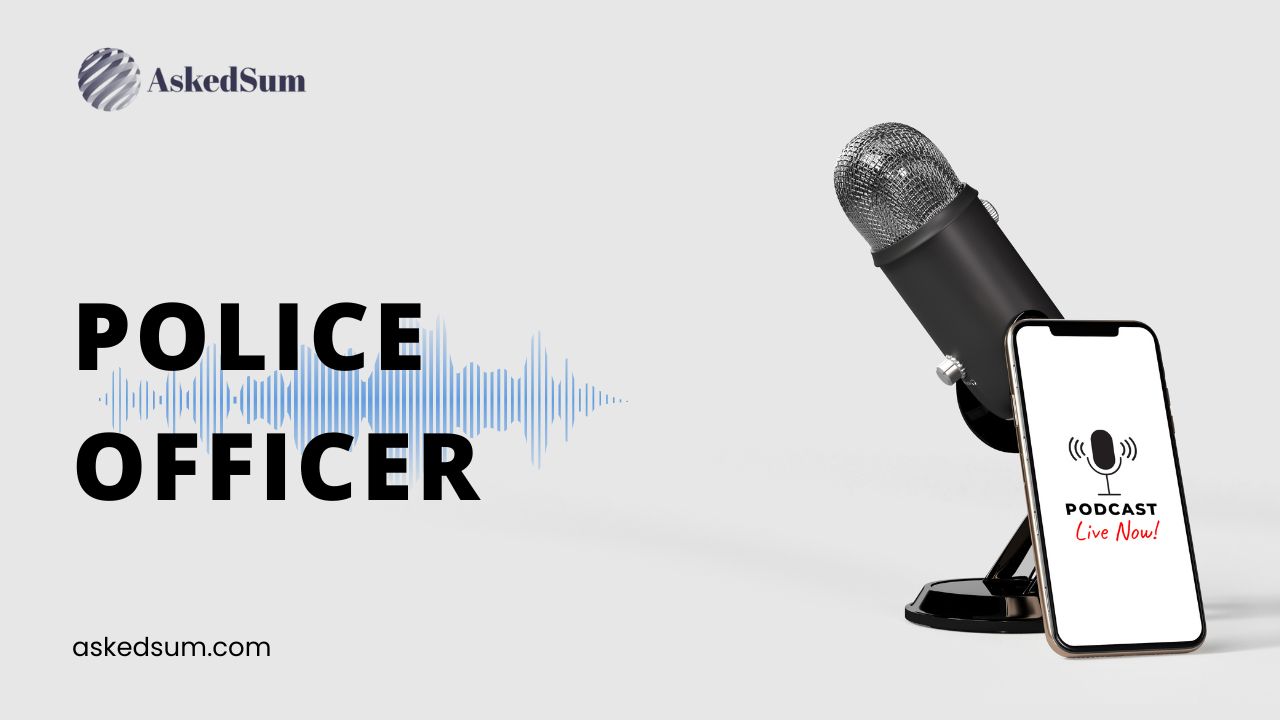Table of Contents
Choosing a career in law enforcement is not merely a professional decision; it’s a commitment to uphold justice, serve the community, and become a guardian of societal values. The journey to becoming a police officer often begins with a deep-rooted desire to make a meaningful difference in the world. This blog post aims to explore the multifaceted reasons behind this noble career choice, providing guidance and insight for those preparing to articulate their motivations in a police officer interview.
The role of a police officer extends beyond enforcing laws; it’s about being a pillar of the community, a source of help in times of need, and a symbol of trust and safety. Whether it’s responding to emergency situations, offering a helping hand to those in distress, or working proactively to prevent crime, the job encompasses a broad spectrum of responsibilities that require not just physical prowess but also emotional strength and moral integrity.
For many, the appeal of a law enforcement career lies in the daily challenges and the opportunity to face them head-on. It’s a path that promises variety, excitement, and the chance to encounter diverse situations that test one’s abilities and character. Moreover, the sense of camaraderie and brotherhood among officers creates a unique work environment where one can find support, mentorship, and lifelong friendships.
Deep Dive into Why Do You Want To work Here? 20+ Legit Answers
As we delve into this topic, we’ll explore the importance of understanding and articulating one’s motivations for joining the police force. We’ll provide comprehensive insights into interview preparations, with a focus on thoughtful, deep, and even humorous questions that might arise. Moreover, we’ll discuss the strengths, weaknesses, challenges, and benefits associated with this career, offering real-life examples to illustrate these points.
For those considering a career in law enforcement, understanding the ‘why’ behind your choice is crucial. It’s not just about passing an interview or wearing a badge; it’s about embarking on a journey that will shape your life and impact the lives of others. Through this post, we aim to guide, inspire, and prepare you for this rewarding and demanding profession.
Importance of the Title
The title “Why Do You Want to Be a Police Officer” is significant as it directly addresses a fundamental question that every aspiring police officer must answer, not just for the interviewers but for themselves. This question probes into the core motivations and values of the individual, which are essential in a profession that demands high ethical standards, courage, and a strong sense of duty. Understanding one’s motivations helps in aligning personal goals with the responsibilities and realities of police work, ensuring a fulfilling and sustainable career in law enforcement.
Interview Questions with Detailed Answers and Real-Life Examples
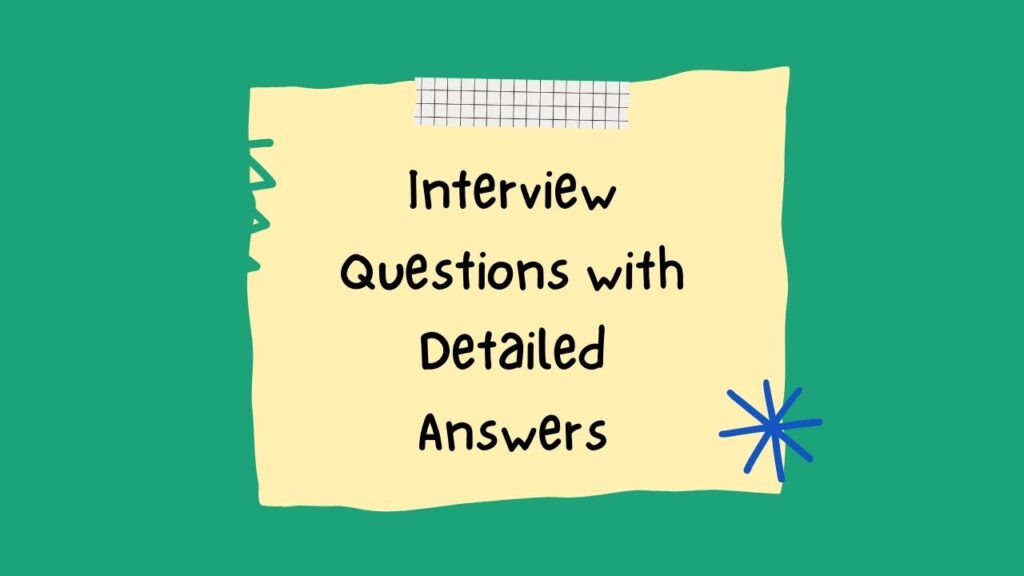
Question: Why do you want to become a police officer?
- Answer (200+ words with example): My desire to become a police officer stems from a deep-seated commitment to serve and protect my community. Growing up in a neighborhood where people often felt unsafe, I witnessed how the presence of dedicated officers brought a sense of security and order. For instance, Officer Smith, a local beat cop, knew everyone by name and always had time for a friendly chat or to offer advice. His approach not only deterred crime but also built a bridge of trust between the police and the community. Inspired by his example, I realized that being a police officer is about making a tangible difference every day, whether it’s through preventing crime, providing assistance, or simply being a reassuring presence. I believe my strong sense of justice, empathy, and commitment to public service align perfectly with the duties of a police officer.
- Question: How do you handle high-pressure situations?
- Answer: Handling high-pressure situations effectively is crucial in law enforcement. I’ve honed this skill during my time as a volunteer firefighter. In one incident, we were called to a severe car accident. Despite the chaos, I focused on the task at hand, using my training to provide first aid and comfort to the injured until paramedics arrived. This experience taught me the importance of staying calm under pressure, thinking clearly, and acting decisively, which are essential qualities for a police officer.
- Question: Can you give an example of a time when you had to resolve a conflict?
- Answer: Conflict resolution is a key part of policing. I recall a situation at my previous job in retail where two customers were arguing loudly, disturbing others. I approached them calmly, listened to each side, and then mediated a solution that satisfied both parties. This incident highlights my ability to defuse tense situations through active listening, empathy, and fair problem-solving, skills I believe are vital for a police officer.
- Question: Describe a situation where you had to make a quick decision without all the information you needed.
- Answer: Quick decision-making is a regular part of police work. Once, while hiking, I encountered a lost child who was visibly distressed. With limited information about the child’s origin and immediate needs, I had to act quickly. I comforted the child, ensuring their safety, and contacted park authorities to locate the parents. This experience underscores my ability to make swift, sound decisions in uncertain situations, a crucial skill for a police officer.
- Question: How do you plan to contribute to team dynamics in a police department?
- Answer: Teamwork is the backbone of effective policing. In my previous role as a project coordinator, I was responsible for leading a team under tight deadlines. By fostering open communication, collaboration, and mutual respect, we successfully completed the project ahead of schedule. This experience equipped me with the skills to be an effective team player in a police department, where collaborative efforts are essential for success and safety.
- Question: What are your strategies for dealing with the emotional impact of police work?
- Answer: Police work can be emotionally taxing, so having coping strategies is important. I practice mindfulness and engage in regular physical activity to manage stress. Additionally, I believe in the power of a strong support network, both professionally and personally. Sharing experiences and seeking guidance from colleagues, as well as maintaining a healthy work-life balance, are key to handling the emotional aspects of the job.
- Question: Give an example of how you have dealt with a moral dilemma.
- Answer: Facing moral dilemmas is inevitable in law enforcement. During my time as a community volunteer, I was privy to confidential information about a local issue. I had to balance the trust placed in me with the need to report illegal activities. I resolved this by consulting a mentor and ultimately reporting the issue while respecting the confidentiality of those involved. This experience taught me the importance of ethical decision-making and seeking advice when faced with moral challenges.
- Question: How would you handle a situation where your actions as a police officer are publicly criticized?
- Answer: Public scrutiny is part of being a police officer. I believe in taking responsibility for my actions and learning from any mistakes. If criticized, I would reflect on the situation, seek feedback, and use it as a learning opportunity to improve my policing practices. Open communication and a commitment to transparency are key to maintaining public trust and personal integrity in such situations.
- Question: Can you discuss a time when you went above and beyond the call of duty?
- Answer: Going above and beyond is a principle I live by. As a volunteer in a local shelter, I once noticed a resident showing signs of severe depression. Although it wasn’t my direct responsibility, I took the initiative to connect them with mental health services and followed up on their progress. This experience reflects my commitment to making a positive impact, a quality I will bring to my role as a police officer.
- Question: How do you stay updated with the laws and regulations relevant to policing?
- Answer: Staying informed is crucial for effective policing. I regularly read law enforcement publications, attend community meetings, and participate in continuing education courses. For instance, I recently completed a course on digital evidence, which is increasingly important in modern policing. This proactive approach to learning ensures that I am always up-to-date with current laws and policing techniques.
Thoughtful Interview Questions (15 Questions)

- How do you define integrity in law enforcement, and how would you ensure it in your daily duties?
- Can you discuss how you would handle a situation where your personal values conflict with your duties as a police officer?
- What do you believe is the most significant challenge facing law enforcement today, and how would you address it?
- How do you plan to build and maintain trust within the community you’ll be serving?
- Describe how you would approach working with individuals from diverse backgrounds and cultures.
- What strategies would you employ to manage the stress and emotional strain inherent in police work?
- How do you envision using your role as a police officer to positively impact youth in the community?
- Can you provide an example of a time when you had to adapt to a significant change? How did you manage it?
- How would you balance upholding the law with being compassionate in situations that may require a softer approach?
- Discuss a time when you had to rely on your communication skills to resolve a difficult situation.
- What is your understanding of community-oriented policing, and how would you implement it in your role?
- How would you handle a situation where you witnessed another officer engaging in unethical behavior?
- Describe a scenario where you had to make a decision without supervision. How did you approach it and what was the outcome?
- What steps would you take to continuously improve your knowledge and skills as a police officer?
- Can you talk about a time when you had to deal with a particularly sensitive or emotional case? How did you handle it?
Deep Dive into Why Do You Want to be a Delta Sigma Theta?
Deep Interview Questions (15 Questions)
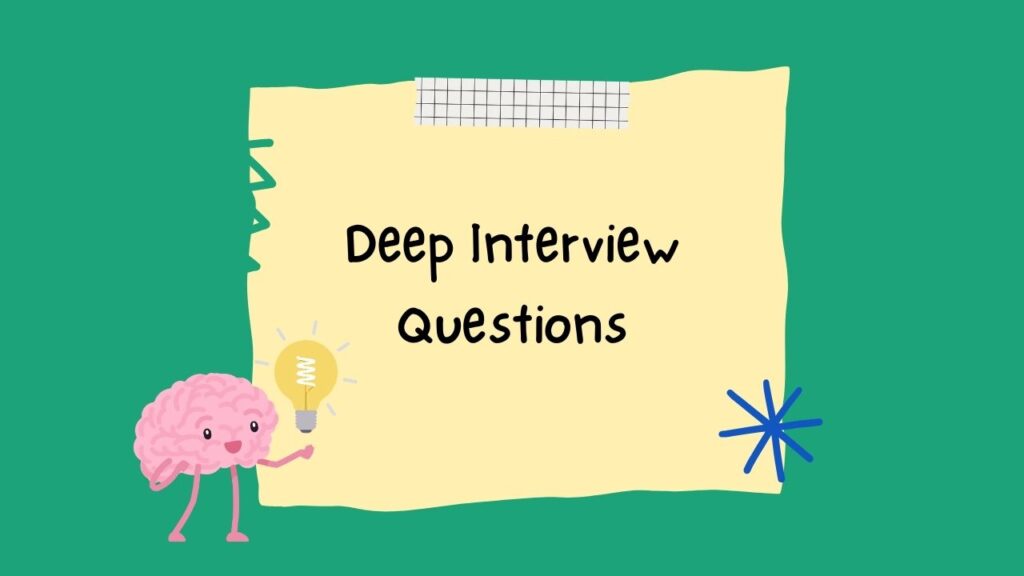
- How do you perceive the balance between law enforcement and protecting individual rights in your role as a police officer?
- In your view, how should a police officer handle the moral complexities that arise in the line of duty?
- Can you discuss a time when you faced an ethical dilemma and how you resolved it?
- What strategies would you use to handle a situation involving vulnerable individuals, such as the homeless or mentally ill?
- How do you plan to maintain your mental health and emotional well-being while dealing with the daily stresses of police work?
- What are your thoughts on the use of force in policing, and how would you ensure it’s applied appropriately?
- How would you approach a situation where the legal course of action conflicts with the community’s interests?
- Can you talk about a challenging situation where you had to exercise restraint and patience?
- What is your understanding of systemic issues, like racial bias, in policing, and how would you work to address them?
- How do you plan to stay objective and unbiased in situations where personal beliefs might be challenged?
- Discuss how you would handle receiving orders that you disagree with ethically or morally.
- How do you intend to contribute to positive change within the police department you will be working for?
- In what ways do you think modern technology is impacting policing, and how do you plan to adapt to these changes?
- Can you provide an example of how you would handle a crisis situation that requires both quick action and careful consideration of potential consequences?
- How would you handle a situation where community members are distrustful or fearful of the police?
Funny Interview Questions (15 Questions)
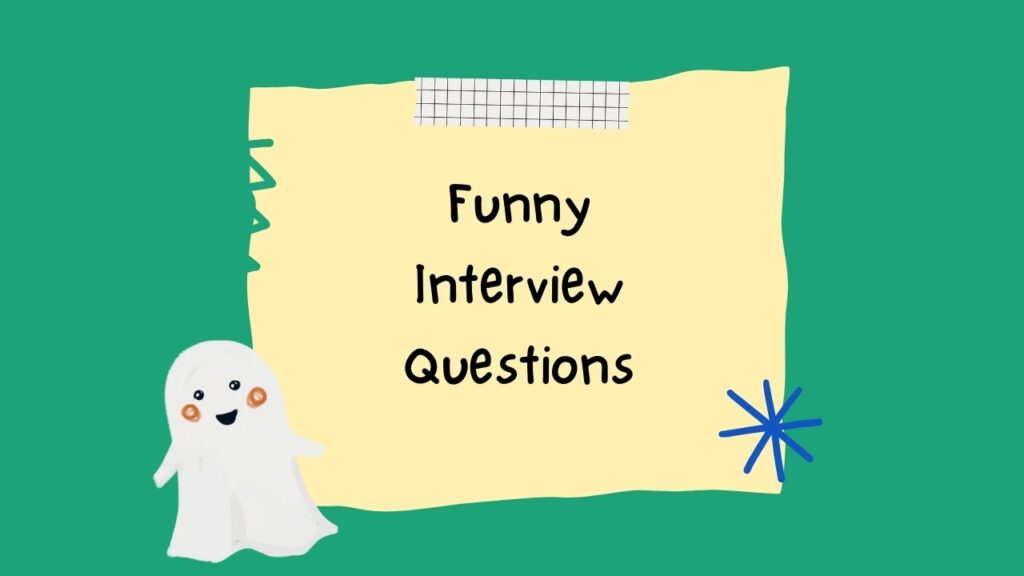
- If you could choose a theme song to play every time you walk into the police station, what would it be and why?
- If you were a superhero, what would your police superpower be?
- Imagine you could bring any fictional detective as your partner on the force. Who would you choose and why?
- If you were an officer in a silent movie, how would you use exaggerated expressions and actions to communicate with your team?
- What kind of doughnut would you be, and how does that reflect your policing style?
- If you could have a police car outfitted with any ridiculous feature, what would it be?
- Which fictional police officer from TV or movies do you most relate to, and why is it not Paul Blart: Mall Cop?
- How would you use your favorite hobby to solve crimes?
- If animals could be trained as police partners, which animal would you choose and why?
- You’re undercover at a clown convention. How do you maintain your cover?
- If you could invent a new, non-lethal police gadget, what would it be and how would it work?
- Imagine you’re directing a buddy cop movie. What’s the plot twist you’d include?
- How would you convince a cat stuck in a tree to come down during a neighborhood watch?
- If you could solve one famous unsolved mystery, which one would it be and how would you crack the case?
- You’re given the task to rename the police department’s K-9 unit. What humorous name do you choose?
Deep Dive into Why Do You Want to be a Radiologic Technologist?
Meaningful Interview Questions (15 Questions)
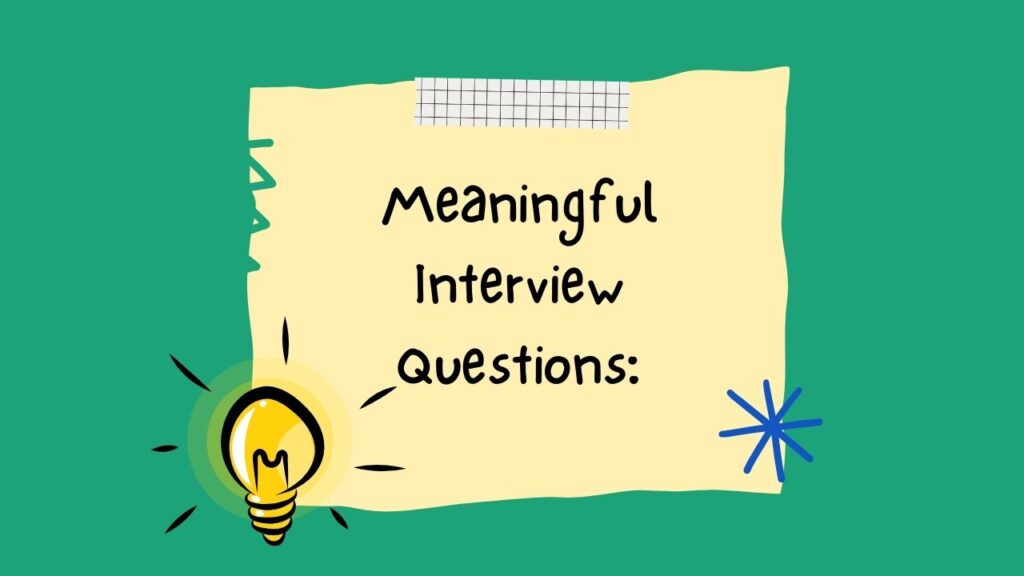
- What inspired you to pursue a career in law enforcement, and how has that motivation evolved over time?
- How do you plan to balance enforcing the law with showing empathy and understanding in community interactions?
- What do you believe is the key to effective communication in high-stress situations involving the public?
- How would you approach building relationships in communities with a history of distrust towards the police?
- Can you describe how you would handle a situation where you are required to enforce a law you personally disagree with?
- What strategies would you employ to ensure your actions as a police officer are transparent and accountable?
- How do you view the role of education and continuous learning in your development as a police officer?
- In what ways do you believe police officers can contribute to social change and community improvement?
- How do you plan to stay informed about the different cultures and communities you will serve?
- What are your thoughts on the importance of mental health for law enforcement officers?
- How would you handle a situation where your partner or colleague violates police protocol or ethics?
- What measures would you take to prevent burnout and maintain a healthy work-life balance in this demanding career?
- How do you plan to address and adapt to the rapidly changing technologies and methodologies in modern policing?
- Can you discuss a time when you had to show resilience and perseverance in your personal or professional life?
- What does being a part of the ‘Thin Blue Line’ mean to you, and how do you interpret this responsibility?
Why Do You Want to Be a Police Officer? Essay
The aspiration to become a police officer is rooted in the fundamental desire to serve and protect the community. This noble profession is more than just a job; it’s a commitment to uphold justice, ensure public safety, and foster a sense of trust and security among citizens.
First and foremost, the role of a police officer is intrinsically linked to the concept of public service. Officers are the front-line defenders against crime and disorder, playing a critical role in maintaining the peace and enforcing the law. This responsibility comes with a unique opportunity to make a tangible, positive impact on society. Whether it’s responding to emergency situations, deterring criminal activities, or simply being a reassuring presence in the neighborhood, every action taken by a police officer contributes to the greater good.
Another compelling reason to pursue this career is the variety and excitement it offers. No two days are the same in the life of a police officer. From patrolling streets to investigating crimes, the job encompasses a wide range of activities that require both physical and mental agility. This diversity not only keeps the job interesting but also fosters continuous learning and personal growth. Police officers must adapt to new challenges, think on their feet, and develop a broad set of skills – from effective communication and empathy to strategic thinking and problem-solving.
Moreover, becoming a police officer provides an opportunity to strengthen community ties. Police officers often interact with people from all walks of life, helping to resolve conflicts and offering assistance in times of need. These interactions build mutual respect and understanding, bridging the gap between law enforcement and the community. By fostering such relationships, officers can create a more cohesive and cooperative environment, which is essential for effective policing and community wellbeing.
The career also offers a sense of camaraderie and teamwork. Police forces operate like close-knit families, where members rely on each other for support and guidance. This sense of belonging and mutual trust is not only vital for personal well-being but also enhances the effectiveness of law enforcement as a whole.
Lastly, the role of a police officer comes with a deep sense of pride and honor. Wearing the uniform represents a commitment to a higher purpose – to serve justice and protect the innocent. It’s a badge of honor that signifies courage, integrity, and dedication. For many, this is the driving force behind their decision to join the police force – the chance to be part of something larger than themselves, to contribute to the safety and betterment of their community.
In conclusion, the desire to become a police officer stems from a combination of personal and societal motivations. It’s about being a key player in maintaining law and order, embracing the excitement and diversity of the job, building stronger community relations, enjoying the camaraderie of the force, and experiencing the honor of serving the public. It is a career path that offers both challenges and rewards, demanding the best of one’s abilities and character, and in return, providing a unique opportunity to make a real difference in the world.
Strengths
- Empathy
- Example: Understanding and sharing the feelings of others, crucial in dealing with victims of crime or in conflict resolution. For instance, empathizing with a domestic abuse victim to provide appropriate support.
- Physical Fitness
- Example: Necessary for the demands of the job like pursuing suspects or handling physical confrontations. Being in top physical condition can be crucial in life-saving situations.
- Integrity
- Example: Upholding ethical standards and honesty, essential in maintaining public trust. For instance, reporting misconduct even when it involves fellow officers.
- Communication Skills
- Example: Effectively conveying information and de-escalating tense situations. Skillfully negotiating in a hostage situation is an example where communication is key.
- Problem-Solving Abilities
- Example: Quickly analyzing situations and deciding the best course of action, like strategizing to resolve a public disturbance while minimizing risk.
- Resilience
- Example: Bouncing back from challenging situations, such as dealing with the aftermath of a tragic accident and continuing to perform duties effectively.
- Observation Skills
- Example: Noticing subtle details that could be crucial in investigations, like spotting a hidden weapon during a routine traffic stop.
- Teamwork
- Example: Collaborating effectively with other officers and agencies, like coordinating in a multi-departmental drug bust operation.
- Adaptability
- Example: Adjusting to rapidly changing scenarios, such as shifting from regular patrol duties to emergency response during a natural disaster.
- Commitment to Justice
- Example: A deep-rooted desire to uphold the law and ensure fairness, like diligently working on a cold case to bring closure to a victim’s family.
Weaknesses
- Emotional Involvement
- Example: Becoming too emotionally attached to a case can cloud judgment, such as struggling to remain objective in cases involving children due to personal experiences.
- Risk of Burnout
- Example: The high-stress nature of the job can lead to burnout, like experiencing fatigue and decreased motivation after extended periods of intense work.
- Handling Public Scrutiny
- Example: Struggling with the pressure and criticism from the media and public, especially in high-profile cases or incidents.
- Work-Life Balance
- Example: Difficulty in maintaining a healthy balance between personal life and demanding job responsibilities.
- Impatience
- Example: Showing frustration in situations requiring extensive paperwork or slow-moving legal processes.
- Overconfidence
- Example: Being overly confident in one’s abilities, potentially leading to underestimating dangerous situations.
- Bias
- Example: Unconscious biases affecting decision-making, such as having preconceived notions about certain groups, which can impact policing.
- Dealing with Authority
- Example: Difficulty in accepting and following orders that are in conflict with personal beliefs or seem ineffective.
- Resistance to Change
- Example: Struggling to adapt to new policies or technologies that are introduced within the department.
- Perfectionism
- Example: Setting overly high standards for oneself, leading to stress and disappointment when those standards are not met in every aspect of the job.
How This Profession Can Help Others
Being a police officer is fundamentally about serving and protecting the community. Officers are often the first responders in emergencies, providing immediate assistance and support. They play a crucial role in maintaining law and order, ensuring safety, and fostering a sense of security among citizens. Beyond enforcing laws, police officers often engage in community outreach, building bridges with various groups and individuals, especially in marginalized communities. This fosters a culture of mutual respect and understanding, contributing to a more cohesive society.
Challenges Based on Title
Police officers face a range of challenges including high-risk situations, confronting societal issues like drug abuse and homelessness, dealing with public scrutiny, and balancing the physical and emotional demands of the job.
Benefits
Benefits of being a police officer include job security, opportunities for advancement, the chance to make a significant impact on the community, and the camaraderie and support of fellow officers.
Conclusion
Choosing to become a police officer is a decision that carries profound personal and societal implications. It is a path of courage, commitment, and continuous personal growth. This profession not only offers a chance to protect and serve but also to evolve as an individual, facing and overcoming challenges while making a lasting impact on society.

